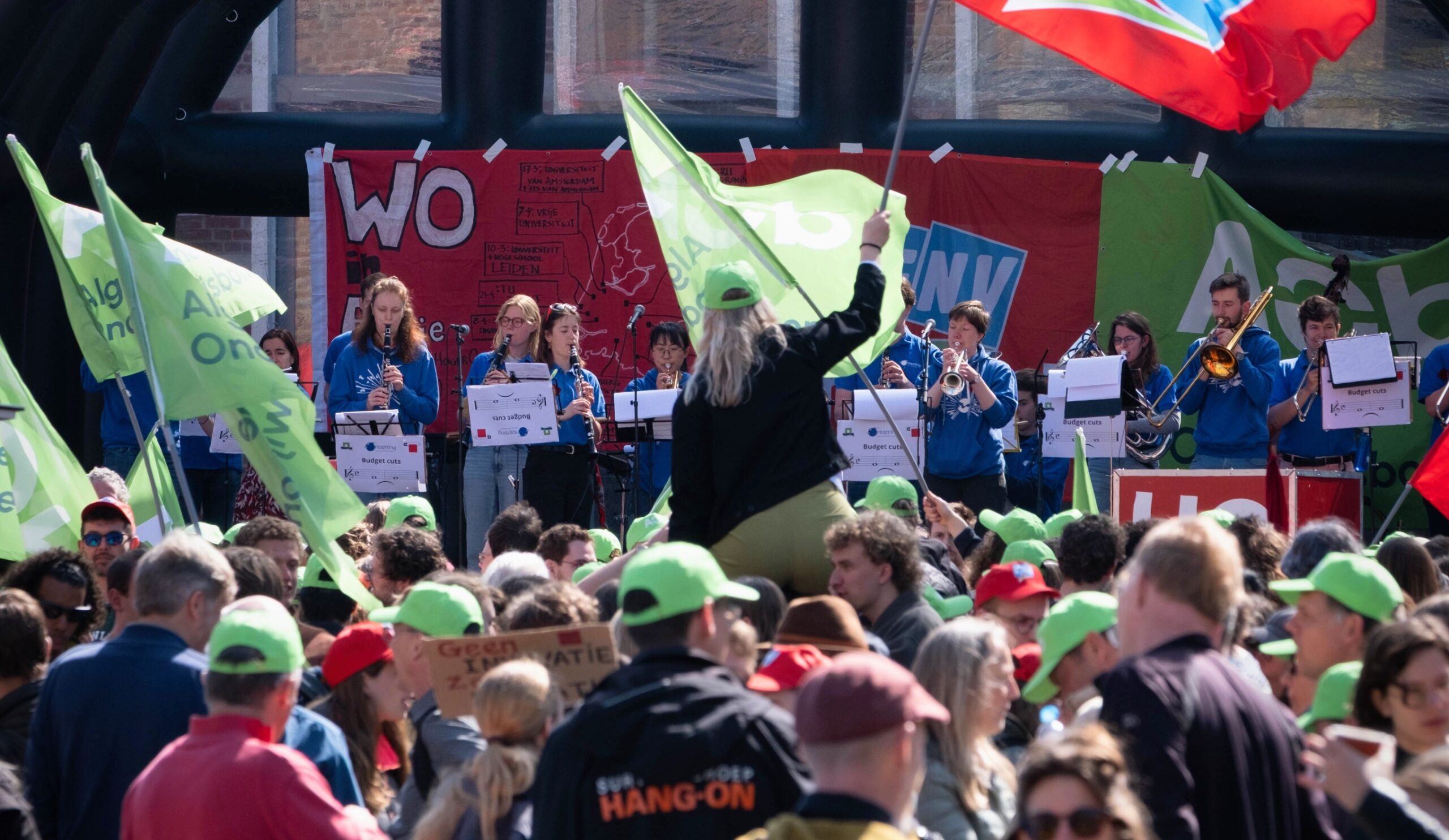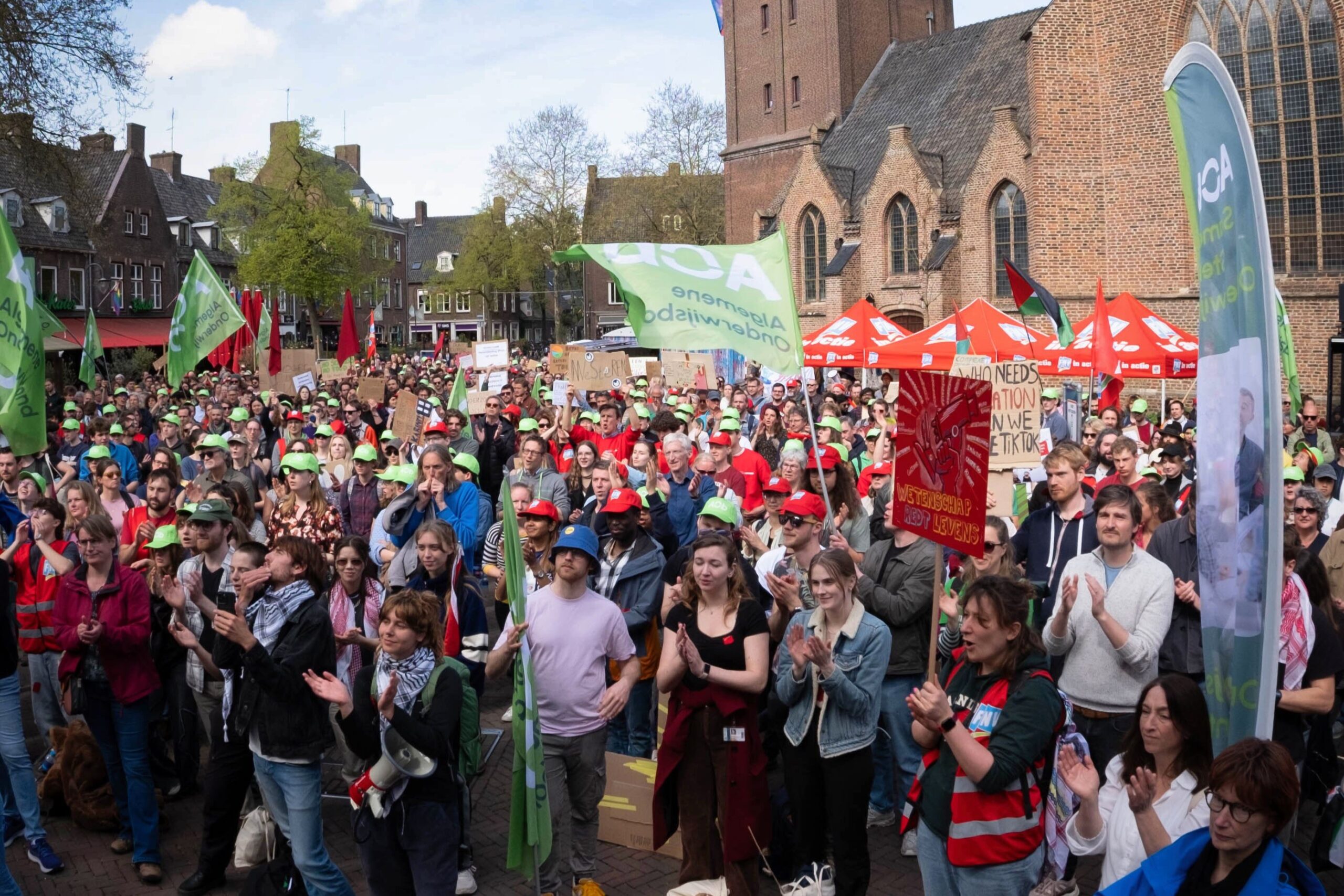The higher education cuts will hit WUR too. The Executive Board has to find savings of 80 million euros and that means making hard choices, with jobs at risk as well. It is hardly surprising that employees are so worried. They are concerned about their job, increasing work pressure and the growing threats to academic freedom. Reason enough to mobilize in protest against The Hague’s sledgehammer. Last Monday (14 April), it was Wageningen’s turn in the rotating strikes taking place between 10 March and 24 April. From Leiden to Nijmegen and from Maastricht to Groningen, staff at academic and applied universities are taking up the strike gauntlet.
That raises the question of whether there is any point to these strikes. After all, the plans of Education minister Eppo Bruins have already been approved by the Upper House of Parliament. Was the long procession of protesting WUR students and staff from the campus to the town centre merely a symbolic act, a ritual without any real effect? That thought must have crossed a lot of people’s minds. Even so, some 2000 students and staff (according to the organization) turned up to the protest. Even Wageningen, not known for its activism, has clearly had enough.
They were there not because of some naive optimism but because of a sense of solidarity and a shared vision of higher education. They believe these cuts are not unavoidable but the consequence of the wrong choices and misguided political arguments. And while the fact that the Upper House has given its consent is a blow, all is not lost. Politicians are bickering over the Spring Budget, and anyway the present government will eventually come to an end. We need to continue to voice the shared opposing view that universities are not education factories and that the cuts are an attack on the future and development of society. The belief in that message unites us.
This Comment presents the views and analyses of the editorial board, formulated following a discussion with the editors.

 Photo Guy Ackermans
Photo Guy Ackermans 

